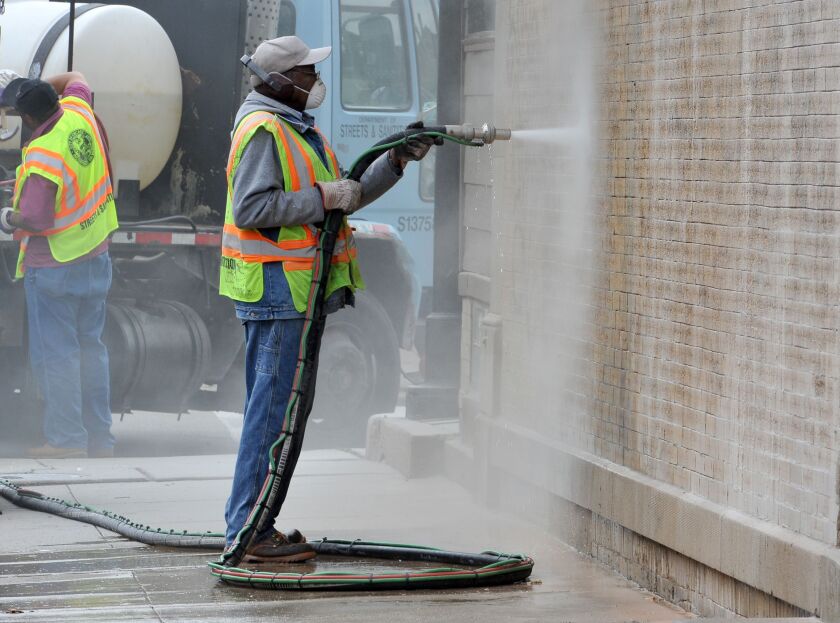Surveillance cameras used to discourage Chicago motorists from speeding and running red lights also will be put to work to deter “nuisance crimes” like graffiti and fly dumping.
The Chicago Department of Streets and Sanitation has awarded a $98,557 contract to QStar Technology LLC of Torrance, Ca. that calls for the installation of the a “crime deterrent system.”
According to the department’s request for proposals, the city intends to purchase 15 motion-detecting camera units over a one-year period and place them in neighborhoods “where nuisance crimes are prevalent as a means of deterrent and/or monitoring” illegal activity.
The crime-deterrent systems must be moveable and solar-powered, mountable on light poles and buildings and have a minimum operating range of 100 feet.
They must be “tamper-resistant to bullets, harsh weather conditions and vandalism” and equipped with a “warning light indicator and customizable voice warning message.”
The city is further demanding a digital resolution of at least 18 mega-pixels with the ability to download photos and capture daytime and nighttime images and reflective license plates. The fifteen surveillance cameras must also have the ability to record voices for a minimum of fourteen seconds.
Top mayoral aides say they turned to “high-resolution, motion-activated” surveillance cameras because crimes like fly dumping — which refers to dumping without a permit — “typically occur at night or in low-traffic areas.”
Streets and Sanitation personnel will review the images on a daily basis to find culprits “through license plates and other identifiers, so that these criminals can be cited accordingly,” the sources said.
Streets and Sanitation spokesperson Sara McGann was asked where the new cameras would be tested or whether the 15-camera experiment was a prelude to installing surveillance cameras citywide.
McGann refused to answer either question when she replied to the Sun-Times via email, offering only that city officials “are always looking for opportunities to refine our methods for maintaining the health and cleanliness of our neighborhoods. … To that end, we are employing a new tactic of placing cameras strategically in areas that have historically been prone to fly dumping and graffiti vandalism. By using these cameras, we will help the departments remain proactive in our efforts to deter and reduce this costly and unsightly vandalism in our neighborhoods.”
Earlier this year, Chicago stepped up its game in the never-ending battle against graffiti.
Streets and Sanitation added three graffiti removal crews and eight new chemical removal trucks to its existing fleet of 14 to keep response times for graffiti removal to “three-to-five days.”
For decades, Chicago gangs have used graffiti to mark their territories. Graffiti is also used to threaten rivals or take credit for shootings, which can lead to retaliation. More recently, gangs have started portraying their graffiti and symbols in online videos to boast about their deeds.
Through mid-April, the city had already completed 31,500 requests for graffiti removal. Streets and Sanitation Commissioner Charles Williams at the time claimed Chicago was winning the never-ending war on graffiti.
“We try very hard to get it off as quickly as we can,” Williams said then.






